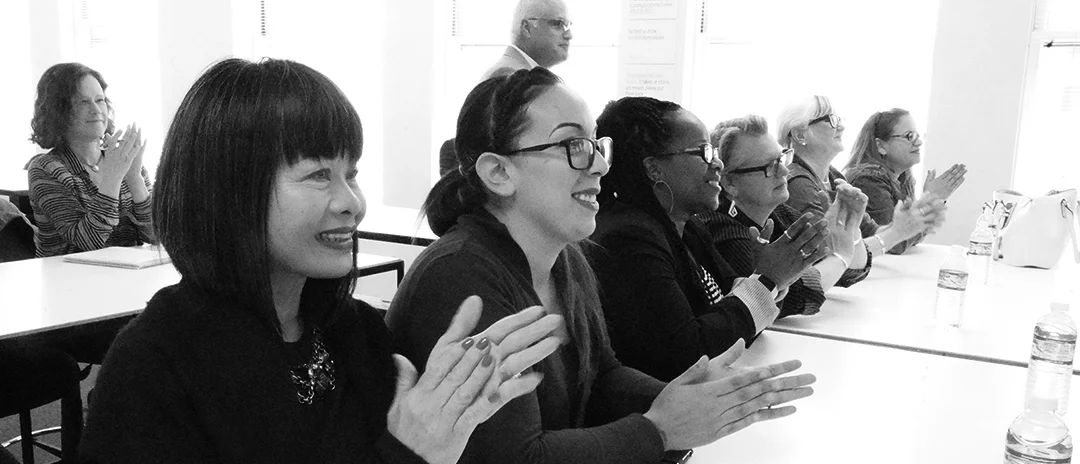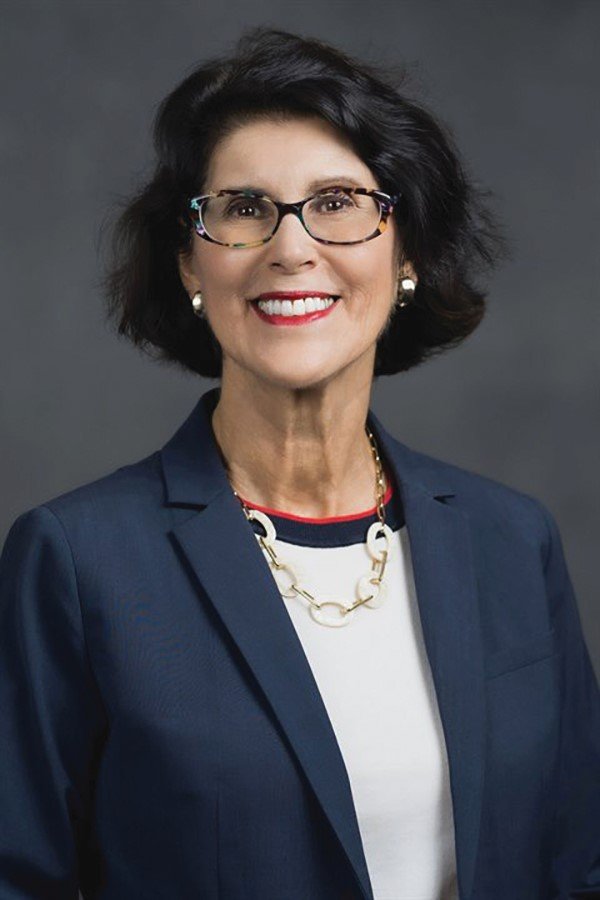SAN FRANCISCO, CA, April 11, 2023 – Twenty-five women residents, staff and supporters of the Five Keys Home Free community recently gathered to share a Passover Seder and dinner, affirming they are strong and resilient people and to share their reality — their own tyranny and freedom — as women unjustly sentenced to long term prison sentences including Life Without the Possibility of Parole, life in prison. Now free and living in California’s first transitional residential facility for criminalized survivors of domestic violence, they celebrate freedom and their second chance at life.
WATCH THE VIDEO
Sunny Schwartz, Debby Hamolsky, Kathryn Spiak, Karen Levine, Ellen Friedman, and Laura Troiani
The meal was inspired by the Passover’s spiritual message that there is the potential to break out of the enslavements of the past and to evolve with redemption, compassion and triumph.
Tiffany Holmes, Delia Ginorio, Delia Mendoza, Jennifer Trayers, Kathryn Spiak, Chalia Broudes, Debby Hamolsky, Ellen Friedman, Tammy Johnson, Demien Johnson, Susan Bustamante, Laura Troiani
“Like the Jews who were freed from slavery, tonight we celebrate your liberation from tyranny and patriarchy and are so honored and happy to be here with you,” said Karen Levine, a social justice activist, long time staff of the SF Sheriff’s Department and the Veteran’s Administration. “Mitzrayim which means the narrow place is the story of Passover — the leaving of the narrow place of slavery in Egypt, and of suffering. It is understood both literally and through the personal stories of coming to freedom, kind of like a 10 by 8 cell.” For the women of Home Free, Karen now facilitates WomanAlive, a 52-week violence prevention course for women survivors of violence — a re-education program which helps with intimacy, communicatio skills and violence prevention.
Susan Bustamante, who spent 31 years in prison as an LWOP (lifer) before her sentence was commuted, and other women shared a rich snapshot of honesty about where they have been and where they are now. Like the Israelites liberation from slavery in ancient Egypt, the womens’ lived experiences are tales of faith and community and triumph over adversity.
“Through all the horrific abuse, I found myself hating, which I hated. It was a horrible place to be and a narrow space I didn’t belong … and this led to prison,”said Bustamante. “My healing came gradually and with my sheer will I grew enough to then get commuted, paroled, and become the advocate I am today.” Bustamante was hired by Home Free last year and is now a re-entry coach who also picks up the women
(many in Los Angeles) when they are released from prison and drives them to Home Free.
Home Free was created by Five Keys, a statewide nonprofit that provides education, vocational training, therapeutic programs, and housing for incarcerated people and the newly released. The majority of people at Home Free were originally sentenced to Life in Prison Without Parole as a result of defending their lives against domestic violence abusers. Because of a loophole in the law that has since been corrected through pioneering legislation, the survivors could not have evidence of past abuse included in their trials. The first of its kind in California, the complex of five two-bedroom apartments is the result of years of advocacy by survivors of intimate-partner violence, and organizations working with them.
The seder is just one of the many events, celebrations and gatherings that the Home Free community creates for the survivors living there and their extended community. The evening was filled with abundant homemade, traditional seder foods – from Karpas (parsley) and Baytzah (roasted egg), both symbolizing spring and rebirth to Charoset, to symbolize the mortar that the Israelite slaves used to make bricks. There was also poignant sharing and singing the ancient Hebrew song, Dayenu, a seder tradition that means “it would have been enough for us,” along with laughter and tears.
“It was a sacred evening,” said Sunny Schwartz, founder of Five Keys Home Free, a transitional housing complex on Treasure Island, which creates a vibrant, dignified, and safe home, a place that says “you are worthy.” Sunny invited longtime friends, Debby Hamolsky, Karen Levine, and Ellen Friedman to envision and revise the Haggadah and to help her cook up the meal and brought the seder home to Home Free, creating a parallel celebration of freedom. All the foods bring the story alive including traditional brisket, matzo ball soup with egg noodles, roasted carrots, mashed potatoes with not just a dash but a main ingredient of love.
Gilda Serrano, Ella, Sunny and Lauren Schwartz
From the blue plates and yellow flowers to an orange symbolizing the Jewish LGBTQ community, the table settings also told a powerful story. Dr. Susannah Hershel, the Eli M. Black Distinguished Professor of Jewish Studies at Dartmouth College, initiated the idea of the orange in the 1980s. She shared the custom with her own guests, and it quickly spread to other homes, and so the orange was said to represent the inclusion of women in the Jewish ritual life.
Since 2020, 17 women have lived at Home Free. Four more women are expected this year in the coming months and 100 more women are waiting inside to come Home Free.
About Five Keys
Five Keys was founded in 2003 by the San Francisco Sheriff’s Department as the first
accredited charter high school in the nation to provide diploma programs for adults in county jails. Today Five Keys serves 30,000-plus Californians annually, spanning 14 counties in 25 county jails and over 120 teaching sites. In addition to schools,
Five Keys operates multiple homeless shelters, permanent supportive housing programs, transitional employment programs, reentry programs and housing for women suffering from immense injustice. Five Keys is a second chance employer. Our goal is to restore communities through education and other programs that respond to the students’ and community needs — which in turn creates safer communities. To visit or donate: www.fivekeyshomefree.org.
Media Contact: Sunny Schwartz (415) 819-7070










